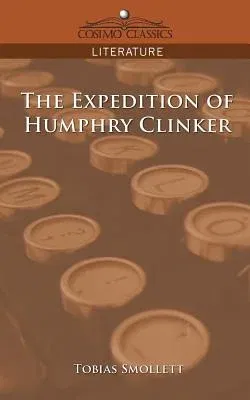Before I was born, [my aunt] had gone such lengths in the way of
flirting with a recruiting officer, that her reputation was a little
singed. She afterwards made advances to the curate of the parish...
-from "To Sir Watkin Phillips, of Jesus college, Oxon, Bath, May 6" An
often overlooked but nevertheless important name in the history of the
English novel, Tobias Smollett greatly influenced Dickens, with his
unsentimental depiction of poverty, and was a favorite of William
Makepeace Thackeray, who called The Expedition of Humphry Clinker "the
most laughable story that has ever been written since the goodly art of
novel-writing began." An early example of the epistolary novel,
consisting entirely of letters written between its characters, this is
Smollett's last book, completed and published just before his death in
1771. Far less brutal than his earlier work, it is the comic story of
Humphry Clinker, a poor lad who joins a touring party of aristocrats on
their journey through city and country. Smollett's satire on the
well-to-do and the fripperies that consumed their society echoes in
countless writers who came after him, from Jane Austen to "Bridget
Jones" with her diary. Scottish writer TOBIAS GEORGE SMOLLETT
(1721-1771) trained as a surgeon but found far more success as a
novelist; he also worked as an editor and translator. Among his works
are Roderick Random (1748) and The Adventures of Peregrine Pickle
(1751).


